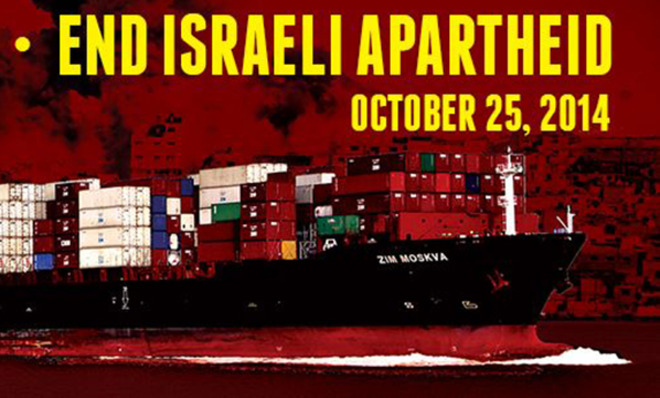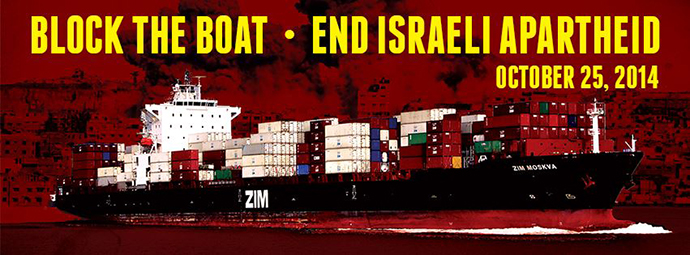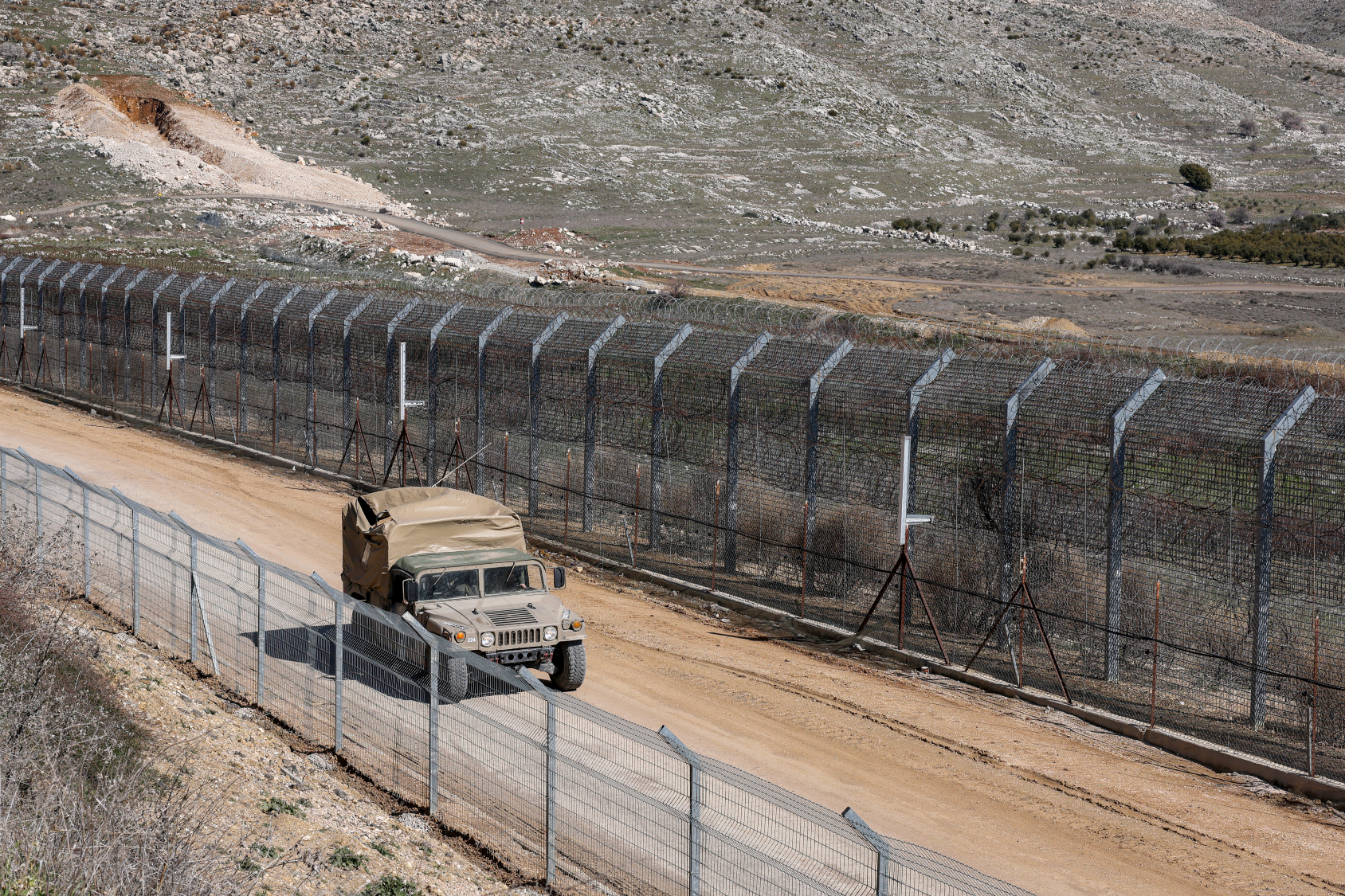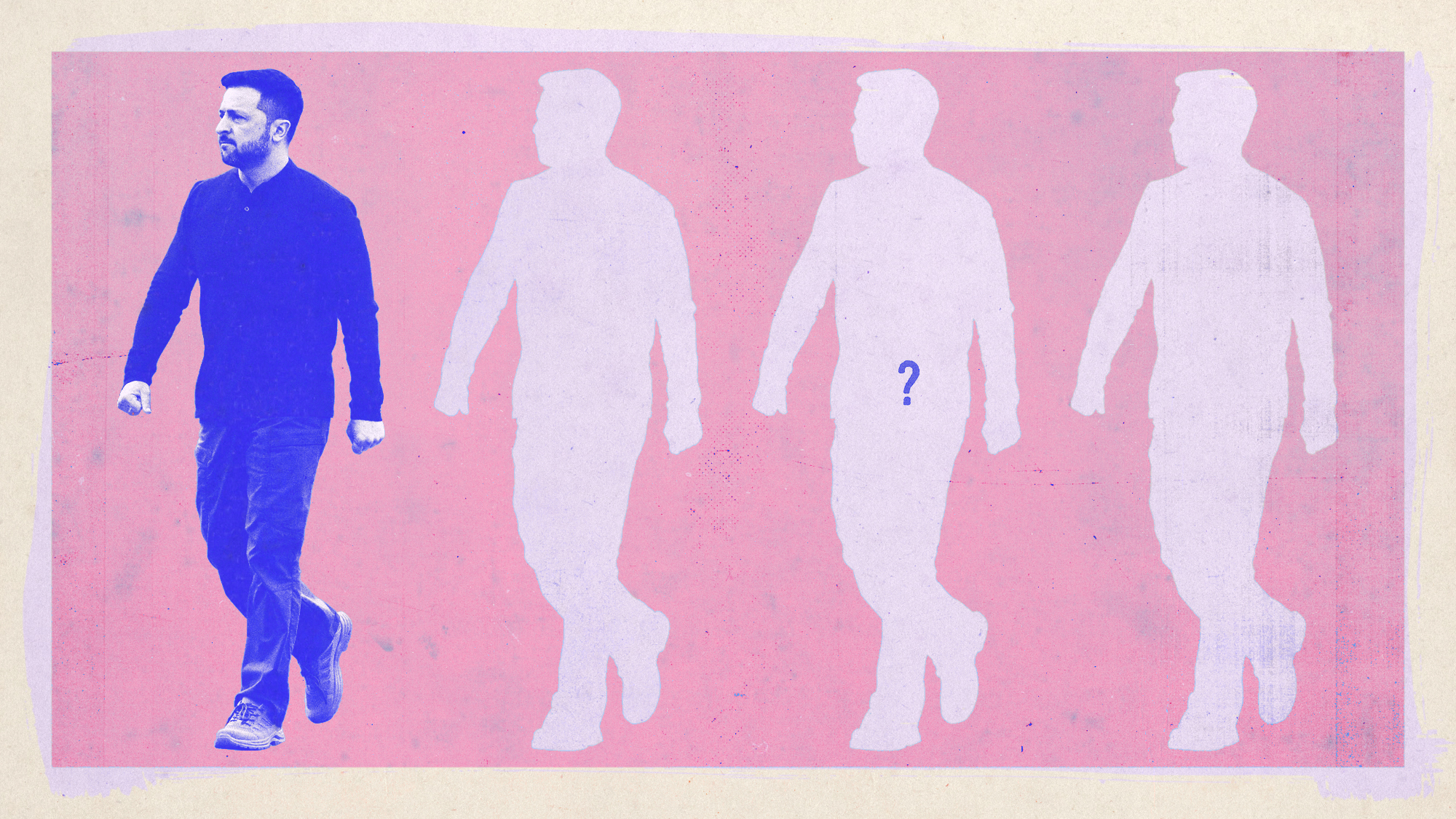How Block the Boat is fighting the Israeli government — in California
By disrupting a key Israeli shipping company, activists intend to change Israeli policy in Gaza and the West Bank



This weekend, activists will attempt to block the unloading of a container ship in Oakland, California. Here's what's going on, and what's behind it.
What is Block The Boat?
Block the Boat is a political campaign of nonviolent direct action against the state of Israel that bills itself as similar to the anti-apartheid movement against white South Africa — one of the first major boycotts of which also happened at the Oakland port back in 1984. By throwing sand in the gears of the Israeli economy, Block the Boat seek to change Israeli policy towards Gaza and the West Bank.
Subscribe to The Week
Escape your echo chamber. Get the facts behind the news, plus analysis from multiple perspectives.

Sign up for The Week's Free Newsletters
From our morning news briefing to a weekly Good News Newsletter, get the best of The Week delivered directly to your inbox.
From our morning news briefing to a weekly Good News Newsletter, get the best of The Week delivered directly to your inbox.
Which company is being targeted?
Zim Shipping, the largest shipper in Israel and the 10th-largest shipping company worldwide. The company was outright controlled by the Israeli government for many years, and though it was privatized in 2004, the Israeli state still owns a large "golden share" in the company and regards it as a national security asset. The golden share allows Israel certain rights over the company, such as a veto power over the transfer of 35 percent or more of Zim shares, and the ability to draft Zim ships into military service.
Zim has been in some trouble since the 2008 financial crisis, which caused a glut in world shipping capacity due to ships ordered before the downturn. It had to undertake an enormous debt restructuring earlier this year, and has not been able to secure membership in any of the East-West alliances that have been constructed by major shippers in an attempt to deal with the excess capacity.
What is the objective?
This weekend, protesters will attempt to block the unloading of a Zim container ship in Oakland. Through the use of public tracking data and investigative work, they have determined which berth the ship will be using, and set up a picket line there — though workers who so wish will be allowed through. According to movement organizers, they have a good relationship with the local branch of the International Longshore and Warehouse Union, so they think few workers will break the picket, at least at first. (Sympathy strikes are illegal under the Taft-Hartley Act, so the union leadership can't do anything official.)
What do the protesters want?
Broadly speaking, justice for Palestinians. Since 1967, Israel has occupied Palestinian lands in the West Bank and Gaza. In line with the Boycott, Divestment, and Sanctions movement, they want an end to occupation, the restoration of human rights to all Arabs and Palestinians under Israeli control, and the right of return.
They also have more specific demands with respect to Gaza, which has been under a crushing blockade for many years. (A Turkish flotilla that tried to run the blockade back in 2010 was sacked by Israeli commandos, who killed nine people in the process, including an American citizen.) The protesters demand free movement in and out of Gaza, free use of the Gaza seaport, and unrestricted trade in goods.
Will this work?
In fact, it's already working to some degree. The boat was scheduled to unload Saturday, but recently rescheduled to Sunday in an attempt to avoid the picket. The protest has been correspondingly moved. A previous effort in August also worked fairly well, holding up a different Zim ship for four days. According to movement organizers, their intelligence work on that occasion was good enough to allow them to anticipate an attempt at misdirection by steaming out and back into the harbor.
Of course, Israel has almost unanimous support among both parties in the U.S., so this almost certainly won't change Israeli policy all by itself. But as part of a long campaign it could be a fairly powerful tool, as the eventual end of apartheid in South Africa shows. Modern container ships are very large and their movements are scheduled months in advance. Screwing up their timetable has to be very expensive.
Update: It turns out the Zim ship gave up entirely and didn't even try to unload. Though the ship will presumably be unloaded somewhere else, that still makes it the most successful effort thus far for the movement.
Photo courtesy Facebook.com/BlockTheBoatForGaza
Sign up for Today's Best Articles in your inbox
A free daily email with the biggest news stories of the day – and the best features from TheWeek.com
Ryan Cooper is a national correspondent at TheWeek.com. His work has appeared in the Washington Monthly, The New Republic, and the Washington Post.
-
 Nashville dining: Far more than barbecue and hot chicken
Nashville dining: Far more than barbecue and hot chickenFeature A modern approach to fine-dining, a daily-changing menu, and more
-
 Music Reviews: Coco Jones and Viagra Boys
Music Reviews: Coco Jones and Viagra BoysFeature "Why Not More?" and "Viagr Aboys"
-
 Visa wants to let AI make credit card purchases for you
Visa wants to let AI make credit card purchases for youThe Explainer The program will allow you to set a budget and let AI learn from your shopping preferences
-
 What happens if tensions between India and Pakistan boil over?
What happens if tensions between India and Pakistan boil over?TODAY'S BIG QUESTION As the two nuclear-armed neighbors rattle their sabers in the wake of a terrorist attack on the contested Kashmir region, experts worry that the worst might be yet to come
-
 Why Russia removed the Taliban's terrorist designation
Why Russia removed the Taliban's terrorist designationThe Explainer Russia had designated the Taliban as a terrorist group over 20 years ago
-
 Inside the Israel-Turkey geopolitical dance across Syria
Inside the Israel-Turkey geopolitical dance across SyriaTHE EXPLAINER As Syria struggles in the wake of the Assad regime's collapse, its neighbors are carefully coordinating to avoid potential military confrontations
-
 'Like a sound from hell': Serbia and sonic weapons
'Like a sound from hell': Serbia and sonic weaponsThe Explainer Half a million people sign petition alleging Serbian police used an illegal 'sound cannon' to disrupt anti-government protests
-
 The arrest of the Philippines' former president leaves the country's drug war in disarray
The arrest of the Philippines' former president leaves the country's drug war in disarrayIn the Spotlight Rodrigo Duterte was arrested by the ICC earlier this month
-
 Ukrainian election: who could replace Zelenskyy?
Ukrainian election: who could replace Zelenskyy?The Explainer Donald Trump's 'dictator' jibe raises pressure on Ukraine to the polls while the country is under martial law
-
 Why Serbian protesters set off smoke bombs in parliament
Why Serbian protesters set off smoke bombs in parliamentTHE EXPLAINER Ongoing anti-corruption protests erupted into full view this week as Serbian protesters threw the country's legislature into chaos
-
 Who is the Hat Man? 'Shadow people' and sleep paralysis
Who is the Hat Man? 'Shadow people' and sleep paralysisIn Depth 'Sleep demons' have plagued our dreams throughout the centuries, but the explanation could be medical